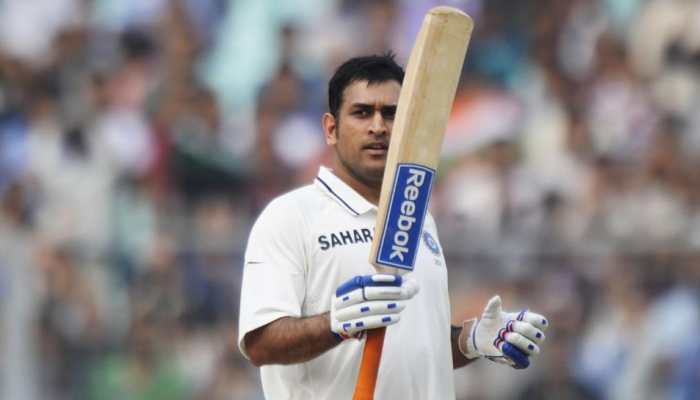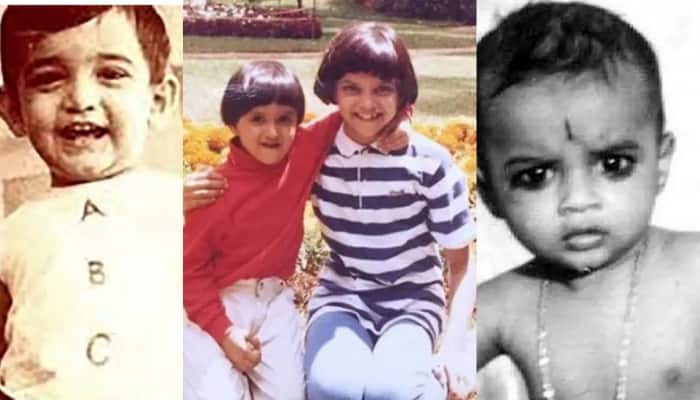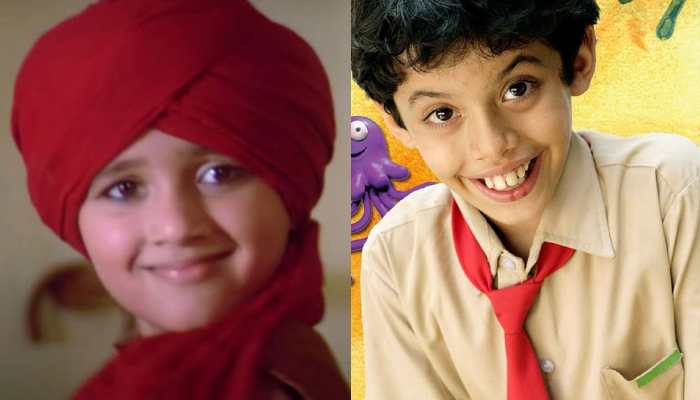9 Years Of PM Modi: How BJP Transformed Itself Into A Pro-Poor, Pro-Farmer, Pro-Women Party
During the last nine years, the Modi govt has launched several pro-poor, pro-farmer and pro-women schemes that have helped millions of Indians, impacted their lives and elevated their standards of living.
Trending Photos
)
Prime Minister Narendra Modi-led BJP government at the Centre will complete its 9 years on May 30, 2023, since its first came to power by winning a massive mandate in the 2014 Lok Sabha Elections. In all these years, the Narendra Modi-led BJP dispensation has taken several initiatives for the upliftment of the downtrodden and the marginalized sections of society including farmers and women - one of the key factors that possibly helped the BJP win a much bigger mandate in the 2019 Lok Sabha elections.
It is beyond doubt that PM Narendra Modi’s idea of ‘Sabka Saath, Sabka Vikas, Sabka Vishwas, Sabka Prayas,’ has transformed India into one of the fastest-growing economies of the world today. In line with PM Modi’s vision that ‘mere good governance is not enough, it has to be pro-people and pro-active,' the BJP regime has incorporated the philosophy of ‘maximum governance and minimum government’ at the centre of the development process.
In the past nine years, the Narendra Modi government has remained committed to ensuring social justice, equality, respect, and equal opportunities for all Indian citizens. Prime Minister Narendra Modi’s campaigns, rallies, his government’s policies, and welfare schemes have largely focused on empowering every Indian citizen, making India a corruption-free, poverty-free and self-reliant nation and a society driven by social values.
Having recently lost the assembly elections in its southern citadel - Karnataka, the Modi-powered BJP has shifted the spotlight back on the "second order impact" of its various pro-poor schemes in order to keep the narrative about its welfare initiatives alive before the high-stakes assembly elections in several states and the upcoming General Elections in 2024.
As part of its ninth-anniversary celebrations, various events planned by the ruling BJP will showcase how several welfare measures taken by the Narendra Modi government have accrued a host of direct and indirect benefits to millions of Indians, how these schemes have impacted their lives and elevated their standards of living.
While BJP’s blueprint for the upcoming 2024 Lok Sabha poll campaign is being drawn, it will undoubtedly revolve around several flagships schemes of the Narendra Modi government like 'The Pradhan Mantri Ujjwala Yojana - that has benefited millions of Indian women and also prevented them from getting sick by providing them with smoke-free and safe fuel, Pradhan Mantri Awas Yojana (PMAY) - under which the government constructed more than 3 crore houses and provided them at an affordable price to the deprived section of the country.
Due to women-centric schemes launched by the Modi government, women, especially in rural India, need not go to faraway places to collect firewood which also saves them a lot of time that can be utilised for gainful employment. Similarly, the BJP dispensation at the Centre has built crores of toilets across the country to promote cleanliness and prevent ordinary Indian citizens from falling prey to various diseases caused by unhygienic conditions.
The presence of children in schools has also increased due to the construction of toilets or “Izzat Ghar” and the drop-out rate has declined significantly. It was PM Modi who first promoted the idea that having a toilet in the house of the poor means ensuring a dignified life to them. With initiatives like 'Nal Se Jal', the Union government ensured that millions of households get access to clean drinking water.
As part of its policy to help the underprivileged, farmers and the poor, the Union government has announced a 10% Reservation for Economically Weaker Sections (General Category), it has directly transferred Rs 22.6 lakh crore to the beneficiaries under Direct Benefit Transfer (DBT) and accorded constitutional status to the OBC Commission.
With flagship schemes like the Swachh Bharat Mission, Jan Dhan Yojana, Ujjwala Yojana, Ayushman Bharat Pradhan Mantri Jan Arogya Yojana, Make In India, Digital India, Skill India among others, the saffron party has been able to project itself as a ‘pro-poor' and 'pro-farmer' party.
With special emphasis on the financial inclusion of Indian citizens, PM Modi announced the Pradhan Mantri Jan Dhan Yojana (PMJDY), the biggest financial inclusion initiative in the world, on 15th August 2014 from the ramparts of the Red Fort. While launching the Yojana, PM Modi hailed the occasion as a festival to celebrate the ''liberation of the poor from a vicious cycle.'' Under PMJDY, more than 45 crore bank accounts have been opened so far.
The Modi government also built more than 10.9 crore toilets under the Swachh Bharat Mission, whereas more than 3 crore urban and rural houses have been constructed under the PM Awas Yojana. Apart from these, the Modi government also launched several other welfare schemes aimed at improving the livelihood of people and providing them with basic amenities, better facilities, skills and opportunities.
In order to provide insurance coverage accessible to ordinary Indians, Pradhan Mantri Jeevan Jyoti Bima Yojana and Pradhan Mantri Suraksha Bima Yojana were launched in 2015.
The Narendra Modi-led NDA government went a step further by launching the Ayushman Bharat Pradhan Mantri Jan Arogya Yojana - a national public health insurance scheme of the Government of India that aims to provide free access to health insurance coverage for the low-income groups in the country. Nearly, 50% of the country’s population qualifies for this scheme. Those registered under this scheme access their own primary care services from a family doctor and when anyone needs additional care, PM-JAY provides free secondary health care for those needing specialist treatment and tertiary health care for those requiring hospitalization.
Another public welfare scheme, PM Garib Kalyan Yojana that was launched during 1st wave of Covid-19 provided more than 80 crore people free foodgrains, thereby ensuring food security to millions of people. The scheme was extended during the second Covid-19 wave in the country.
During the past nine years of PM Modi’s tenure, the BJP government has also launched several women-centric schemes aimed at empowering women and making them socially and financially self-reliant. ‘Beti Bachao, Beti Padhao’ - one of the most talked about schemes of the Modi government - was launched in 2015 with the sole objective of curbing the declining sex ratio in the country, creating social awareness and enhancing opportunities for girls.
‘Pradhan Mantri Ujjwala Yojana’ is another significant scheme for the upliftment of women that was launched by the Ministry of Petroleum and Natural Gas. Under the scheme, the government provided free LPG connections to women Below Poverty Line (BPL). Ujjwala Yojana was launched in 2016. With the launch of Ujjwala 2.0, the scheme was extended to encompass more people into its radius.
Using the 'Nirbhaya' fund, the Union government also introduced a one-stop centre - 'Sakhi'. These centres, located across the country, provide refuge to victims of violence and abuse with legal, medical and counselling services. The 24x7 helpline offers all services to victims under one roof. Sukanya Samriddhi Yojana and Poshan Abhiyaan are some other key women-centric initiatives of the Modi regime.
While the Narendra Modi government withdrew the three Central farm laws after massive protests by the farmers, it also undertook several good initiatives that were very helpful for farmers during the Covid-19 pandemic as it provided financial assistance in the form of cash and subsidy. Pradhan Mantri Kisan Samman Nidhi Yojana is one such initiative of the Modi government wherein farmers get Rs 6,000 per year as minimum income support. Under the PM-Kisan scheme, which is operational since December 2018, beneficiaries get financial benefits in three instalments of Rs 2000 each.
PM Modi also launched Pradhan Mantri Kisan Maandhan Yojana - a pension scheme for the small & marginal farmers of India in September 2019. Under this yojana, farmers in India get a minimum pension of Rs 3000 / month upon attaining the age of 60. However, those who fall in the age group of 18 to 40 years can apply for the scheme.
With an objective to support production in agriculture by providing affordable crop insurance to guarantee comprehensive risk cover for farmers’ crops against all non-preventable natural disasters, the Union government launched the Pradhan Mantri Fasal Bima Yojana in 2016.
PM Modi’s dynamic leadership and his selfless service to ‘Mother India’ has played a vital role in strengthening the social fabric, in the upliftment of poor people, empowering the women, helping the farmers, creating job opportunities for the youth, upskilling people and ushering India on the path of growth and prosperity.
Stay informed on all the latest news, real-time breaking news updates, and follow all the important headlines in india news and world News on Zee News.
Live Tv







)
)
)
)
)
)
)
)
)
)
